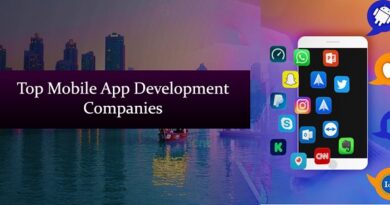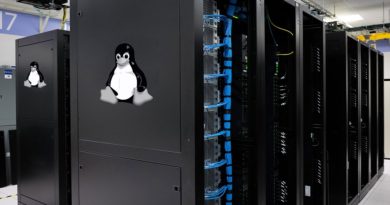8 Benefits of Utilizing Hybrid/virtual Career Fairs to Connect Employers and candidates
Introduction
The use of technology has greatly impacted the way we communicate and connect with each other. In the world of job searching and recruiting, this has led to the emergence of hybrid and virtual career fairs as an alternative to traditional in-person events. These types of career fairs offer a range of benefits of virtual career fairs for both employers and job seekers.
One major benefit for employers is the ability to reach a wider pool of candidates. With a traditional career fair, the pool of potential hires is limited to those who can physically attend the event. However, with a hybrid or virtual career fair, employers can connect with candidates from all over the country or even the world. This expands the pool of qualified candidates and allows employers to find the best fit for their open positions.
For job seekers, the convenience of a hybrid or virtual career fair cannot be overstated. These types of events allow candidates to connect with potential employers from the comfort of their own homes or offices. This can be especially useful for those who may have physical limitations or live in a remote location. Additionally, virtual career fairs can often be less intimidating for job seekers, as they can take their time to research and prepare for their interactions with employers.
Here are 8 benefits of utilizing these types of fairs to make the most of your job search or recruiting efforts.
1. Increased global reach for employers
One of the key benefits of virtual career fairs is that they offer employers increased global reach. With a physical career fair, employers are limited to only those candidates who can physically attend the event. However, with a virtual career fair, employers can connect with candidates from all over the world. This opens up a whole new pool of potential candidates for employers to consider.
- Save time and money
Another big benefit of virtual career fairs is that they can save employers time and money. With a physical career fair, employers have to travel to the event location and set up a booth or table. This can be costly in terms of both time and money. With a virtual career fair, there is no need to travel or set up any physical infrastructure. Employers can simply log into the event platform and start connecting with candidates right away.
- Connect with more candidates in less time
Virtual career fairs also offer the advantage of being able to connect with more candidates in less time than traditional physical events. This is because employers can chat with multiple candidates simultaneously online, whereas at a physical event they would typically only be able to speak with one candidate at a time. This makes virtual career fairs an extremely efficient way for employers to connect with large numbers of high-quality candidates in a short period of time.
2. Ability to target specific groups of candidates
Virtual career fairs offer employers the ability to target specific groups of candidates, which is not always possible with traditional career fairs. For example, employers can target candidates based on their location, industry, or even specific skillsets. This allows employers to connect with the right candidates for their open positions, which can save time and money in the long run.
In addition, virtual career fairs often offer more opportunities for employer branding. Employers can showcase their company culture and values to potential candidates, which can attract top talent. This is especially important in today’s competitive job market.
3. Increased flexibility for employers and candidates
Virtual career fairs offer employers and candidates alike increased flexibility when it comes to connecting with one another. For employers, virtual career fairs provide the ability to target specific groups of candidates more effectively than traditional career fairs. In addition, virtual career fairs often offer more opportunities for employer branding, which can attract top talent.
As for candidates, virtual career fairs allow them to connect with employers from the comfort of their own homes. This is especially beneficial for those who live in rural areas or who have difficulty traveling to physical career fairs. In addition, virtual career fairs give candidates the opportunity to learn more about an employer before committing to meeting them in person.
4. Reduced costs for employers
Employers often find that virtual career fairs are more cost-effective than traditional career fairs. This is because virtual career fairs eliminate the need for travel and accommodation costs, as well as the costs of setting up and staffing a physical booth. In addition, virtual career fairs often have lower registration fees than traditional career fairs.
Another cost-saving benefit of virtual career fairs is that they allow employers to connect with a larger number of candidates in a shorter period of time. This is because employers can meet with multiple candidates simultaneously through video conferencing technology. As a result, employers can save on the time and costs associated with interviewing candidates in person.
Overall, virtual career fairs offer employers a more cost-effective way to connect with talented candidates. By eliminating the need for travel and accommodation costs, as well as reducing registration fees, virtual career fairs can help employers save money while still connecting with top talent.
5. Increased number of employers and candidates
One of the key benefits of virtual career fairs is that they often attract increased numbers of employers and candidates compared to traditional fairs. This is due to the fact that virtual career fairs are more accessible and convenient for both employers and candidates, making it easier for people to participate.
The increased number of employers and candidates participating in virtual career fairs provides a wider range of options for both groups. For employers, this means that they can connect with a larger pool of top talent from around the world. For candidates, this means that they can learn about a greater variety of employers and find the right fit for their skills and interests.
The increase in numbers also leads to increased competition, which can be beneficial for both employers and candidates. Employers can use the increased competition to identify the most talented and qualified candidates, while candidates can use it to improve their chances of landing their dream job.
Overall, the increase in numbers of employers and candidates at virtual career fairs creates a more dynamic and exciting environment that can be beneficial for everyone involved.
6. Greater convenience for employers and candidates
Virtual career fairs offer a more convenient way for employers to connect with talented candidates. By eliminating the need for travel and accommodation costs, as well as reducing registration fees, virtual career fairs can help employers save money while still connecting with top talent. In addition, virtual career fairs often offer more opportunities for employer branding, which can attract top talent.
Virtual career fairs also offer a more convenient way for candidates to connect with employers. Candidates can learn more about employers before meeting them in person, and they can also attend virtual career fairs from the comfort of their own homes. The increased number of employers and candidates participating in virtual career fairs provides a wider range of options for both groups.
7. Better matchmaking between employers and candidates
Virtual career fairs offer a more efficient way to connect employers with candidates than traditional, in-person fairs. By using sophisticated software to match employer preferences with candidate qualifications, virtual career fairs can ensure that both employers and candidates are better matched with each other. This results in a more efficient and effective job search for both parties, and ultimately leads to better placements and satisfied customers.
8. Increased transparency and communication between employers and candidates
Virtual career fairs offer a more efficient and effective way to connect employers with candidates than traditional, in-person fairs. By using sophisticated software to match employer preferences with candidate qualifications, virtual career fairs can ensure that both employers and candidates are better matched with each other. This leads to increased transparency and communication between employers and candidates, as well as better placements and satisfied customers.



